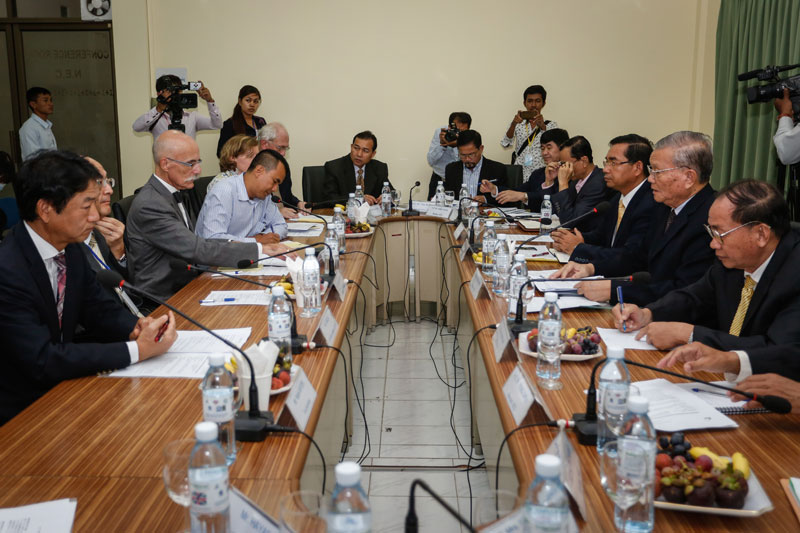The European Union has committed to provide more than $11 million to the National Election Committee (NEC) over the next three years to assist with voter registration before the 2017 commune elections and 2018 national election, election committee spokesman Hang Puthea said Monday.
Since the April 13 creation of the bipartisan NEC, which replaced the old NEC that had been accused of overseeing massive electoral irregularities since its formation in January 1998, the E.U. and Japan have been in talks with its commissioners over the possibility of providing funds.

E.U. Ambassador Jean-Francois Cautain on Monday called a meeting with the NEC, which is chaired by former CPP lawmaker Sik Bunhok, and announced that the E.U. Parliament would make 10 million euros (about $11.3 million) available to the NEC later this year, Mr. Puthea said.
“The European Union revealed that it would help provide 10 million euros, effective from January 2016 to 2019 for the period of commune and national elections,” said Mr. Puthea, a former election observer who now sits on the NEC.
Mr. Puthea said the E.U. is providing the money specifically for the creation of a new digital voter registry that will include the collection of biometric data through fingerprints and photographs.
“The 10 million euros will cover research, the sending of election observers and also election materials for voter registration, such as computers, generators, webcams, fingerprint scanning and the installation of big servers at the [NEC’s] Phnom Penh computer center,” he explained.
“This financial help will mean a lot for elections in Cambodia, and make the voters feel more confident [in the 2017 and 2018 elections] and help to gain people’s trust.”
Mr. Cautain, the E.U. ambassador, said in an email that Monday’s meeting was “fruitful” and that a final decision on funding would be made in the coming months.
“The E.U. explained that 10 million euro had been earmarked to support the Electoral process in Cambodia. The final decision on this funding should be taken by the E.U. in October 2015 with tentatively a start of implementation in January 2016,” he said.



